( – promoted by lowkell)
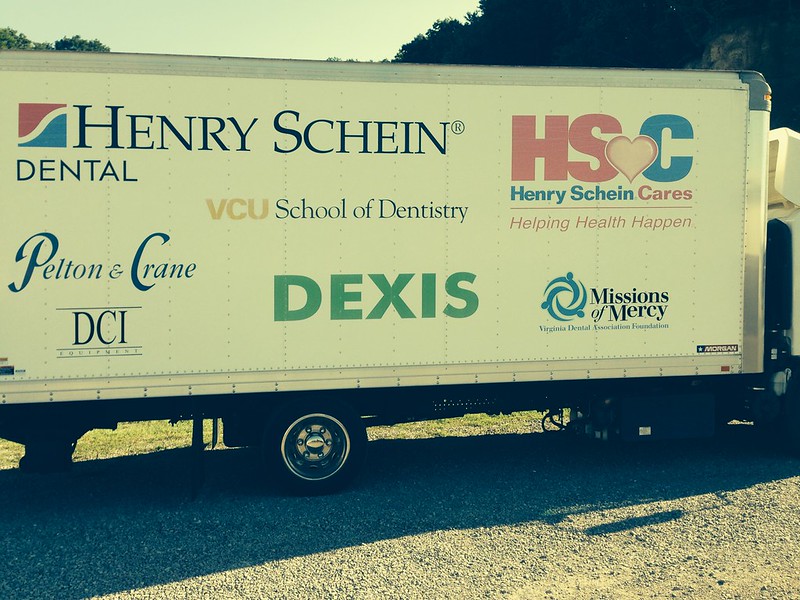 My title has multiple meanings.
My title has multiple meanings.
Perhaps that will become clear.
How did you spend your weekend?
At 1:30 AM Thursday I got in my car and drove for about 6 hours through the night to the mountains of Southwest Virginia, which in the daylight are so heart-breakingly beautiful one almost forgets the poverty of so many therein.
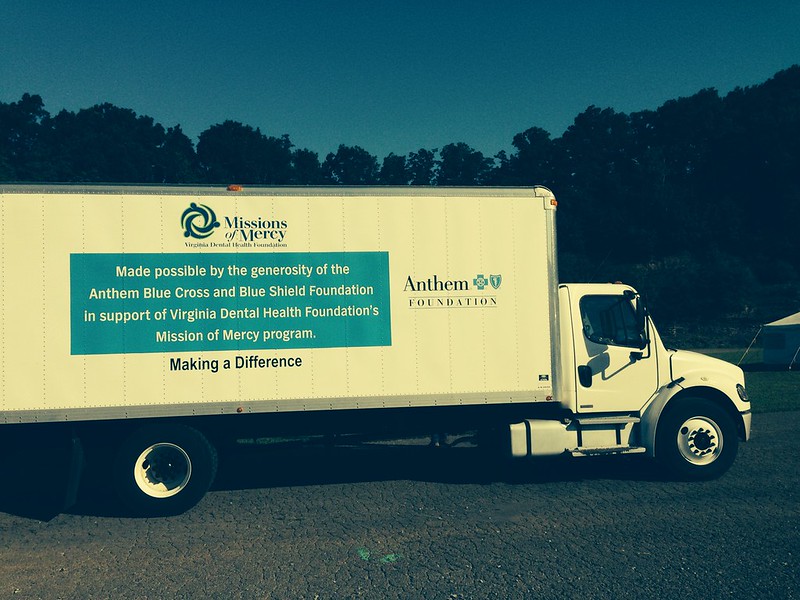 I stopped briefly to check in to my hotel in Norton, then drove a few miles more, through Wise to the Wise County Fairgrounds for yet another “mission,” this my 5th.
I stopped briefly to check in to my hotel in Norton, then drove a few miles more, through Wise to the Wise County Fairgrounds for yet another “mission,” this my 5th.
It was the 15th anniversary of the Wise Virginia Health fair, with dental services provided by the Missions of Mercy of the Virginia Dental Association’s foundation and everything else provided by Remote Area Medical, founded by Stan Brock.
Officially the event began on Friday, but first we had to unload these two trucks and set up. We had many students from the School of Dentistry at VCU, as well as from other colleges and universities. I will talk some more about the students for whom this too was a sacred obligation, as it was for so many – of course the dentists volunteering under what became extremely difficult circumstances, and general volunteers, like yours truly.
Please keep reading.
The trucks were packed:
We had to set up in tents, on a pavement, transforming this
into this
We also filled a medium-size tent with supplies. The piles closest to you are boxes upon boxes of gloves:
To get the materials from the trucks to the staging points, I helped organize the students into lines to pass the boxes and save time:
We had compressors and generators to drive the pumps and the drills
By 2:00 we were sufficiently set-up to begin dental triage, where I work. There dentists would examine patients, ordering x-rays if necessary. We could offer only one service, a choice among extractions, fillings, endo, and cleaning. Patients would have the appropriate colored bands place on their wrists. On Thursday we could only get their x-rays done, because we were not yet providing actual dental services. They also had a band to readmit them the next day for their actual services, and we held on to their paperwork. Friday we also triaged well beyond our ability to treat that day, so by afternoon we would begin assigning patients for the next day.
Here is what the triage area looked like as we began on Thursday:
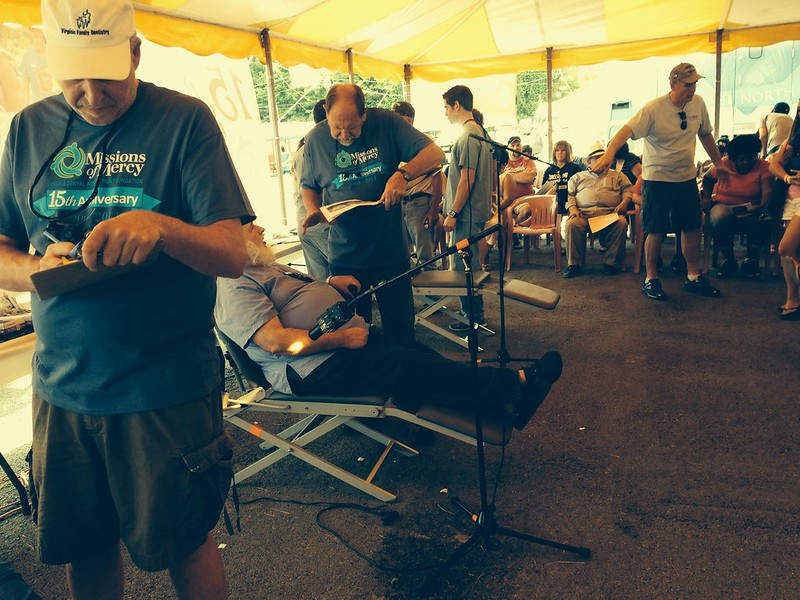
The dentist in the back drives each year from Indiana to volunteer at this event. In the background you can see the waiting area, which held 36 chairs for patients waiting to be seen
On Thursday the weather was nice. Friday and much of Saturday we had heavy rain – we had to move things around to keep patients and equipment dry, and in triage we had puddles.
This is what the treatment area looked like before the rain began on Friday:
At one point I did a double take: I commented to one of the nurses who is there each year that I had just seen someone who looked exactly like one of my students from this past year. She remarked that everyone has a double. I saw him again with an older woman and a girl about his age walking out to where we parked. I discreetly followed them, saw it was Maryland license plate and called his name. This is Dante volunteering in triage, helping with paperwork:
He just turned 16. His older sister helped with the snacks and drinks for the volunteers. His mother is an RN who had volunteered at an event at another site, and wanted her children to see this.
After doing this for a number of years, I see many familiar faces, people I respect for their dedication to serving others. Some are dental and medical professionals. Some are students. Some are ordinary folks – retired people, teachers, engineers, even teachers like me – who give up their time to help.
What can those of us who are not professionals do? We can put the wrist bands on patients, we can escort them from place to place (and some do need assistance being being directed to the correct location). We make sure we have the appropriate medical history filled out, and if not take it: diseases, current medications, allergies. I have done these things, both at this event and in the past. This time I became the primary logistics person. At one point we were running 7 chairs in triage. At each station I had to ensure they had enough of the various wrist bands. I made sure they had mirrors (plastic and disposable) and explorers (stainless steel which I would have to go and get after they were sterilized). I had to take used instruments, disposing of the mirrors and taking the explorers down to be sterilized. I made sure each station had masks, boxes of the appropriate sized gloves for the dentist and those assisting there – we could not touch either clean or dirty instruments without gloves on (I wear large gloves). My routine would be to put a glove on one hand to pick up the dirty instruments and put them on a tray, disposing of the mirrors and walking 50 yards or so to sterilization. Then taking off that glove, putting on another, getting a clean tray and getting clean explorers and distributing them at the work stations. Periodically I would have to go to the supply tent for more gloves, or masks, or gauze.
That may sound simple enough.
Except remember those rains? That meant I could not walk outside, but had to go through the treatment tent, and the spaces there were narrow and busy. On Saturday I was trying to go too quickly, caught an ankle on a tent rope and went down on the pavement. I scraped my left arm and leg, and badly sprained my right ankle. I went to the emergency area in dental where paramedics from Western Albemarle County, more than 4 hours away, cleaned me up. I shoved some ice in my sock and went back to volunteering, although periodically I had to sit down, and that night I slept with my leg elevated. Remember – this is a sacred obligation.
Perhaps it is time to explain that a bit. My first time at Wise was on a Friday in 2009. I was there the entire weekend, and as always I was in dental triage. At the end of the first day I was so moved by what I had seen that i committed to come back and volunteer so long as I was able. Last year I missed because of my wife’s help. Twice I have missed Netroots because it conflicted with this even – in 2010 and this year. It looks like I will have a similar conflict next year.
The choice for me is easy. As much as I am a part of this virtual community, what I do to help make the dentists’ work more efficient is more important than anything else I do beyond my teaching.
I fully realize that I am not essential, that what I do can be done by others – after all, a 16 year old was helping in a position I had done in the past.
But it is essential for me to be there.
This goes beyond the commitment I made in 2009.
It is part of how I fulfill my obligation under Matthew 25, of how we deal with the least of the brethren.
Except that language almost seems demeaning.
Many of the people we see are economically poor – there are not that many good jobs in the area from which these people come, which is not just Southwest Virginia, but also Eastern Tennessee and Kentucky and Southern West Virginia. People are rooted in these communities with strong family ties and are unwilling to move away for employment. Some are broken by injury, by diseases both physical and psychological.
Yet people are more than their medical conditions or their economic status. First and foremost they are our brethren. They are as entitled to decent medical care – for which hearing, vision and dental should not be separate things not included in insurance – and it should be a basic right.
Coming to Wise and to the other events at which I volunteer (which this October will once again include Grundy, about 60 miles closer to West Virginia) not only reminds me of the failures of American society in meeting the medical and dental needs of many of our people, it fuels me to continue to advocate, as I have done not merely by the occasional diary here, but also by speaking directly with public officials I know,
Elected officials come to Grundy. Particularly governors. My first year then Governor Tim Kaine and his wife Anne Holton spent four hours volunteering in patient registration. I have seen local public officials and state legislators. Sen. Mark Warner, a former governor, came for a tour when one of his daughters was volunteering. Two years ago I remember seeing then Governor Bob McDonnell.
As those who read a diary Saturday inspired by the Washington Post Story of that morning, Gov. Terry McAuliffe and Attorney General Mark Herring both came this year. Knowing both, I chatted with them briefly. The Governor came with and read a proclamation honoring the 15 years of service. Then there was a toast – Missions of Mercy is abbreviated as MOM so of course the toast, in champagne glasses, was of milk:
From left to right the four men are Dr. Dickinson, executive director of VDA and the man who runs MOM, Gov. McAuliffe, the dentist who I believe is the current president of VDA, and Attorney General Herring.
Both the Governor and the Attorney General acknowledged they were not fully prepared for what they saw. I also know that despite being warned not to look one of the state troopers accompanying them looked at the buckets full of thousands of pulled teeth and became nauseous.
On Thursday after we set up, we had an informal dinner and an orientation. We were feed breakfast on Friday, Saturday, and Sunday; lunch on Friday and Saturday; and dinner Thursday and Friday. This was organized by the local Lions Club. Thursday the VDA provided us with pizza and subs as we were unloading and setting up.
At Thursday’s dinner, there was an orientation and some remarks. The most pointed were by Stan Brock, who founded Remote Area Medical. He explained that he needed medical attention when he was with a group of South American Indians and it was a 26 day walk to the nearest facility. He wants to get back to doing those kind of events, as he has done in Haiti in recent years. He talked about the shame that in the richest nation in the world these kind of events are still necessary. He has now done one in Los Angeles and will be doing one at Madison Square Garden.
It IS a shame, an embarrassment.
It is wonderful that so many donate their time and their expertise.
It should not be necessary.
We had another notable visitor, Francis X. DiLorenzo, the Roman Catholic Bishop of Richmond, seen here talking with some locals:
Many years ago I did my first masters degree at St. Charles Borromeo Seminary in Wynnewood PA. It is the diocesan seminary for the Archdiocese of Philadelphia, and I was handed by diploma by then Cardinal John Krol, along with a license from the Vatican entitling me to teach religion in any Catholic school in North America, even though I was not then and never have been a Catholic.
One of my professors, in the spring of 1978 IIRC, was then Father Frank DiLorenzo. It was a large class, and I did not expect him to remember me. But we did chat and he insisted upon a picture:
And for those of you who don’t know me, I am not the bald guy on the right, but the guy on the left – beard gone, a fair amount of weight off, hair colored at my wife’s insistence.
I am not sure how informative this diary is. Perhaps not very much.
I find the experience somewhat beyond the power of my words, hence the offering of pictures in the hope it gives some sense.
We as a society have an obligation to care for all of us. That includes these the least of the brethren.
This time I myself got care because of my fall. I not only helped others, I had the experience of being helped myself.
That reconnected me to what is important in a civil society – our connections with one another.
One of my most interesting conversations this weekend was with Cooper, a young man who is about to begin dental studies. He is intelligent, perceptive, and caring.
He did his previous education at Colorado Christian and Liberty. In short, our political worldviews are very different.
What we had in common was a dedication to these the least of the brethren.
That ability to reach across the the things that divide us is something I have previously experienced at Wise. Someone I missed this year is Wallace Huff DDS. Wally is a past president of the VDA, operates out of Blacksburg. His wife was not well this year. Wally’s politics are further to the right than mine are to the the left. But on caring for these the least of the brethren there is a common purpose, as there was between Cooper and myself.
Stan Brock is right. Wise should not be necessary.
So long as it is these the least of the brethren are entitled to our love, respect, and assistance.
it is a sacred obligation.
It is sacred to me.
Peace.

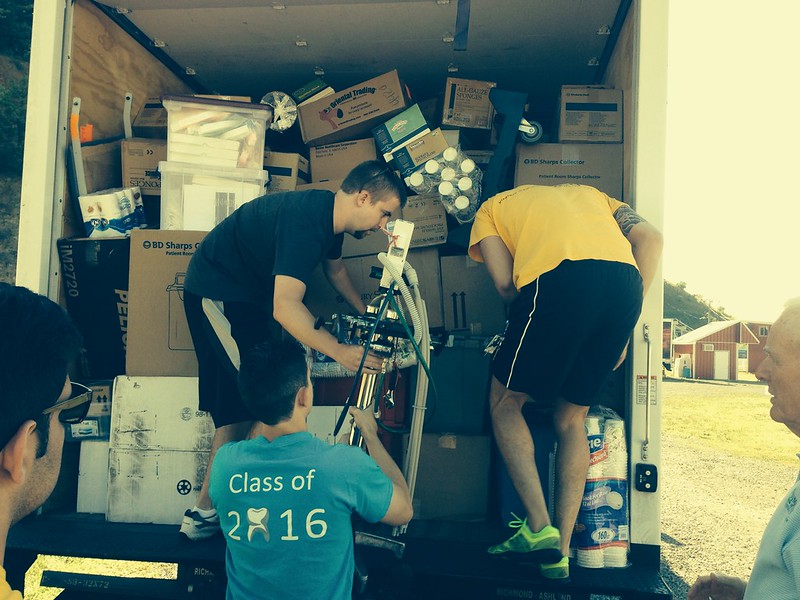
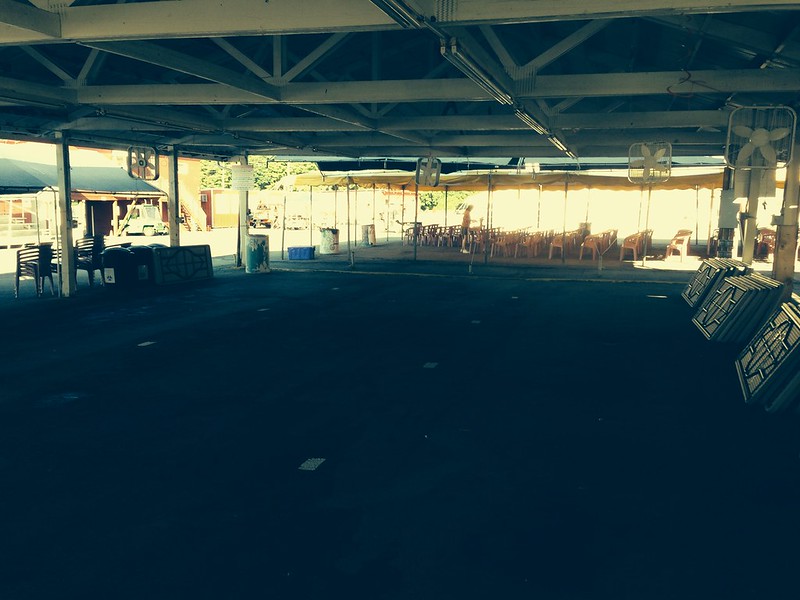
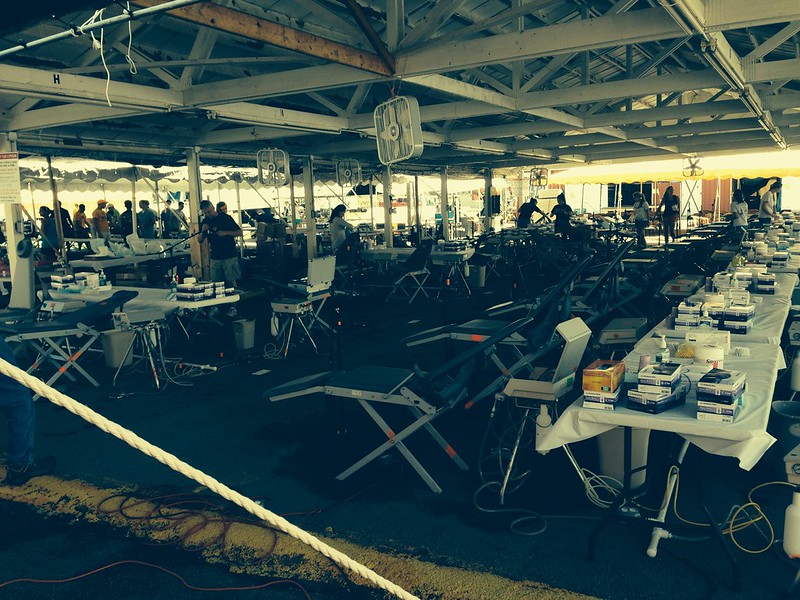
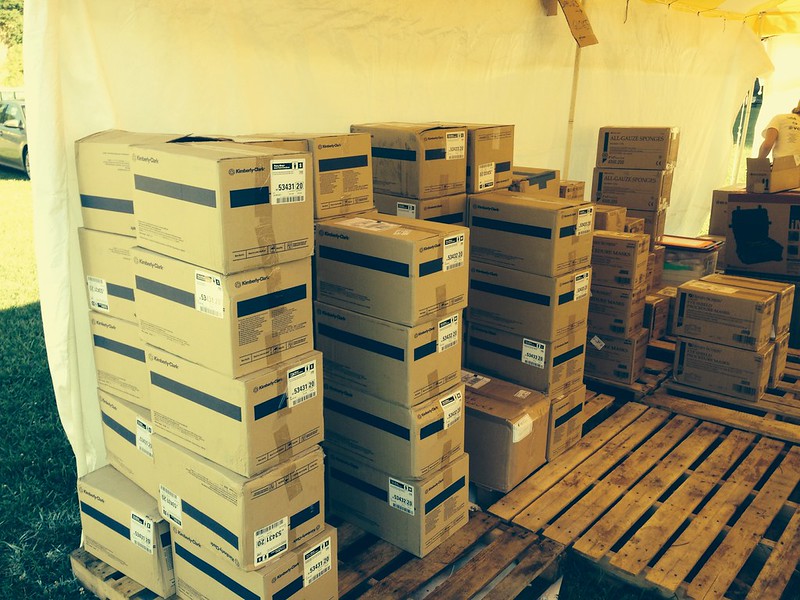
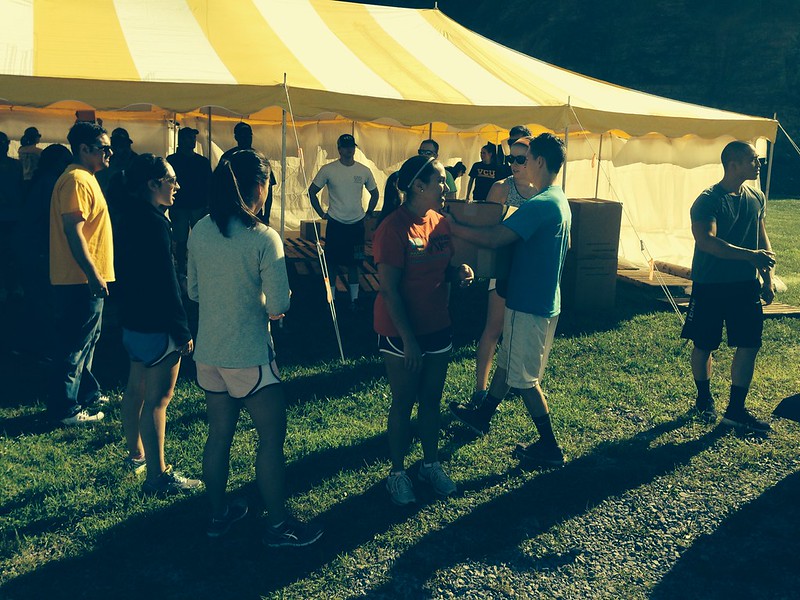
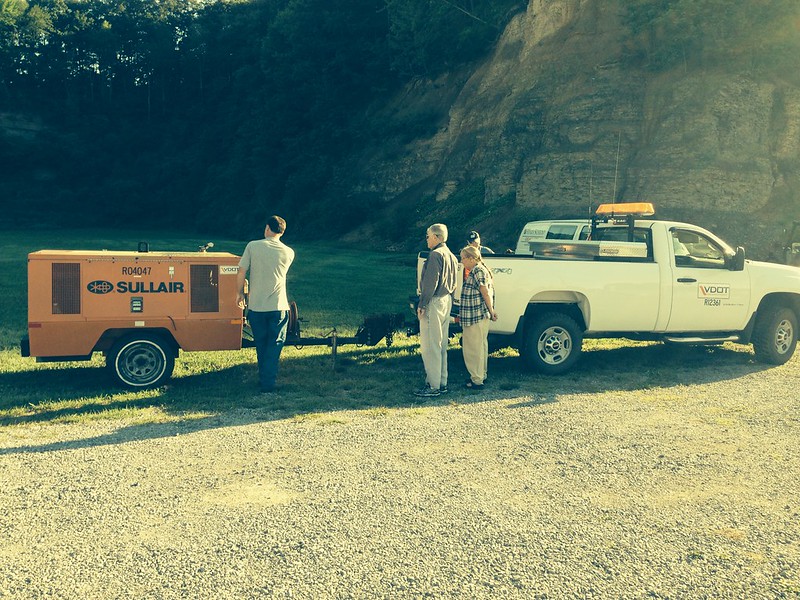
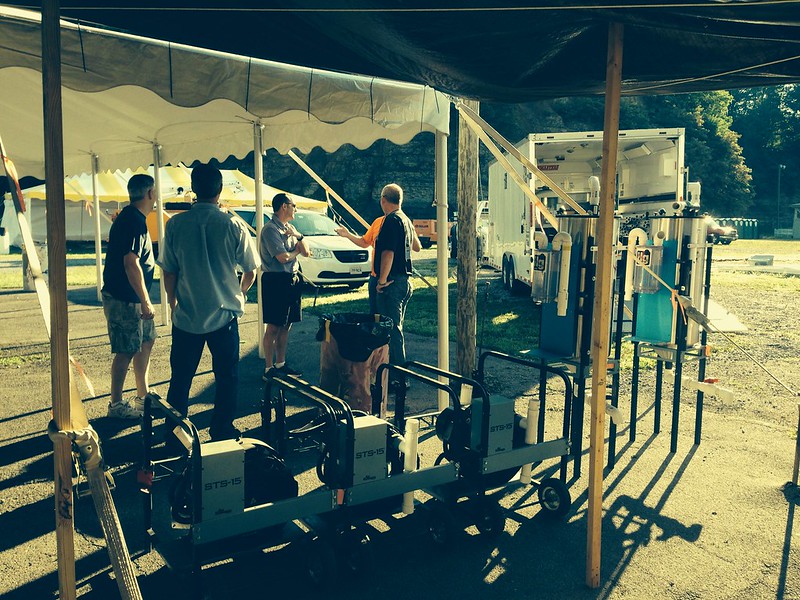
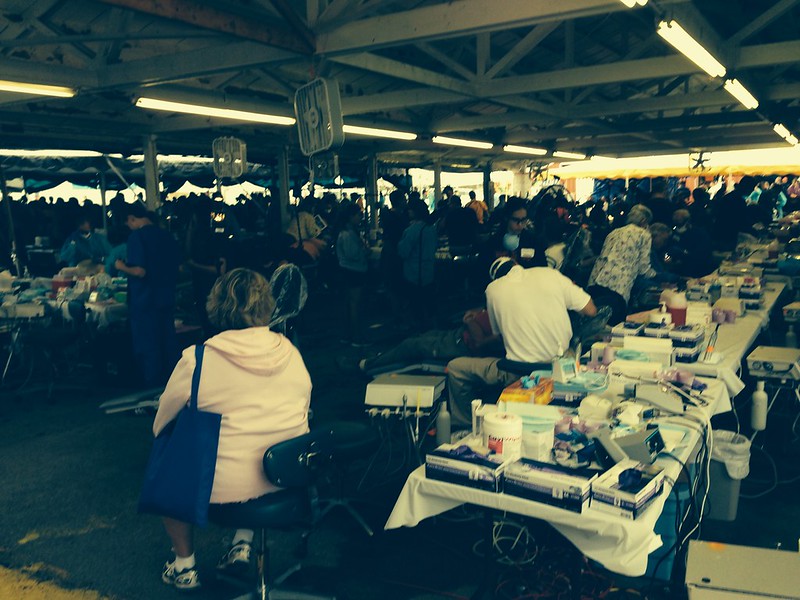
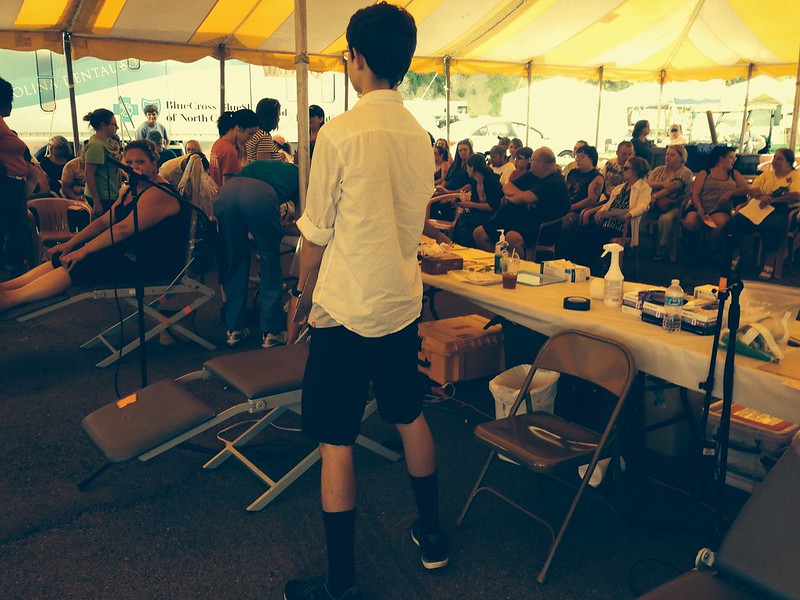
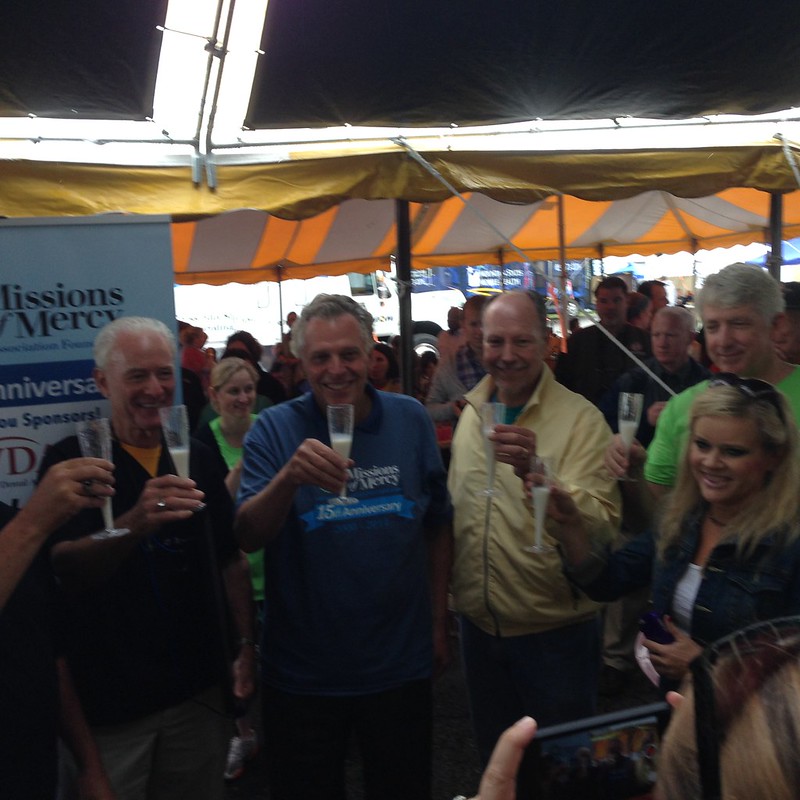
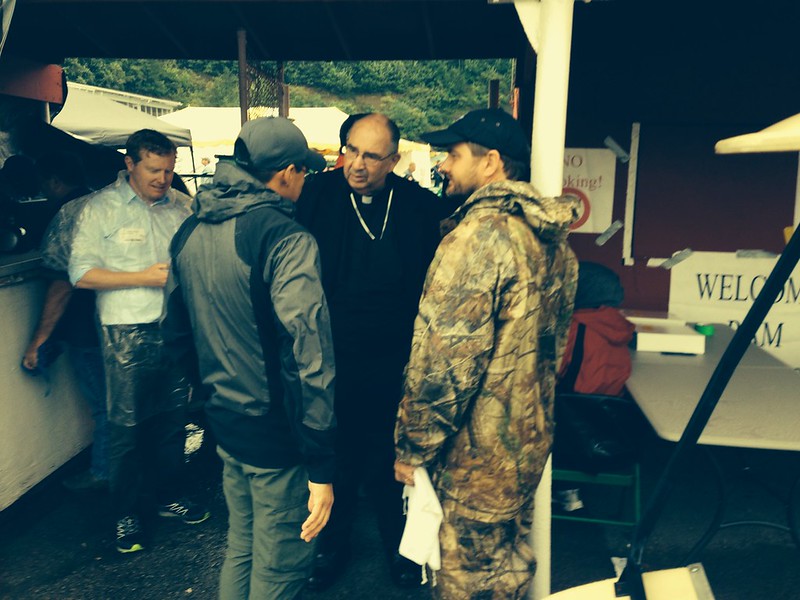
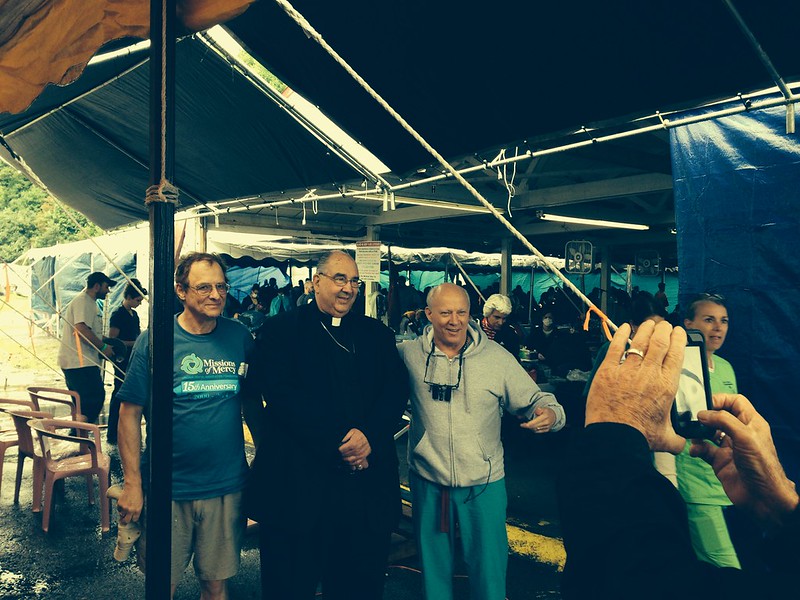
![[UPDATED with Official Announcement] Audio: VA Del. Dan Helmer Says He’s Running for Congress in the Newly Drawn VA07, Has “the endorsement of 40 [House of Delegates] colleagues”](https://bluevirginia.us/wp-content/uploads/2026/02/helmermontage.jpg)
















